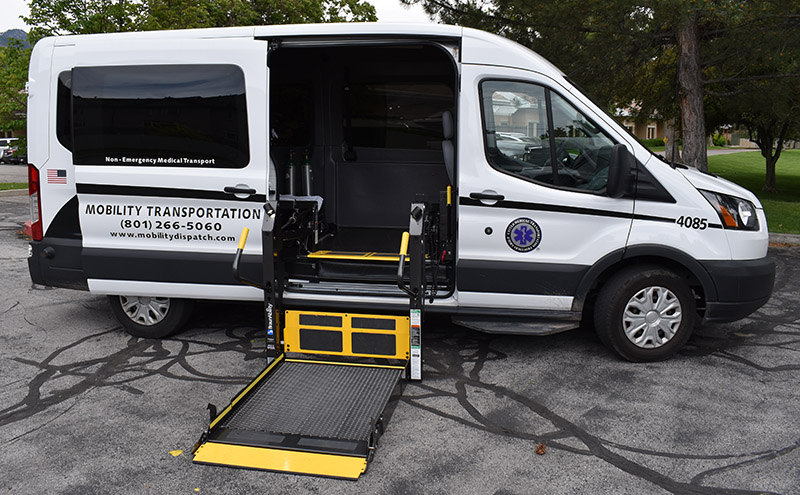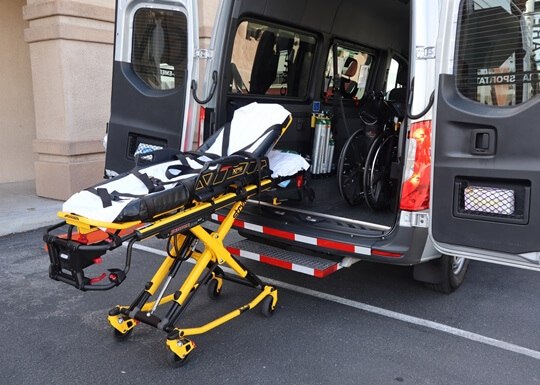Available and Affordable Medical Transportation Options for Seamless Wellness Assistance
In the realm of healthcare, the access and affordability of clinical transport are paramount in ensuring individuals can access the care they require when they need it. The capacity to effortlessly browse transportation options can dramatically impact an individual's capability to obtain timely medical focus, follow-up care, and total wellness. From non-emergency medical transportation solutions to ingenious options like telehealth, the landscape of clinical transportation is evolving to meet the varied requirements of patients. Thinking about the relevance of this element in healthcare distribution, exploring the selection of choices available becomes important for resolving gaps in ease of access and affordability.
Non-Emergency Medical Transportation Provider

These services are staffed by experienced experts that prioritize client convenience and safety and security during transportation. Motorists are equipped to deal with individuals with varying clinical requirements and make sure that all journeys are hassle-free and smooth - Medical Transportation Services Near Me. In addition, non-emergency medical transport services typically use customized vehicles that are wheelchair-accessible, making them ideal for a wide variety of patients with various movement needs
Volunteer Vehicle Driver Programs
Volunteer chauffeur programs are important in giving transport aid for people in need of non-urgent treatment. These programs rely upon the kindness of volunteers that donate their time and automobiles to aid transport patients to and from clinical visits. By making use of volunteer vehicle drivers, organizations can supply a cost-efficient remedy for individuals that may not have accessibility to trusted transportation.
Among the key benefits of volunteer vehicle driver programs is the personalized treatment and attention that people receive. Unlike conventional transport solutions, volunteer motorists often create a rapport with the people they aid, producing a caring and encouraging atmosphere during what can be a difficult time. In addition, volunteer driver programs can assist bridge the space for people living in underserved or rural locations where mass transit choices might be restricted.
Public Transport Options

One of the essential advantages of public transport is its widespread schedule in rural and city locations alike. This comprehensive network allows patients from diverse backgrounds to travel to medical consultations with loved one simplicity. Additionally, public transportation systems are typically furnished to fit people with disabilities, offering easily accessible travel choices for those with movement difficulties.

Ride-Sharing and Transportation Network Firms
The advancement of modern-day transportation options for clinical purposes prolongs beyond standard public systems like trains and buses to encompass the ingenious world of ride-sharing and transportation network firms. Ride-sharing solutions such as Uber and Lyft have actually revolutionized the way individuals travel to clinical visits, offering ease and adaptability to individuals who may not have access to their lorries or traditional public transport. These platforms permit users to ask for an adventure with the touch of a my blog button on their mobile phones, offering door-to-door solution that can be particularly helpful for people with flexibility difficulties or those requiring support.
Transportation network firms (TNCs) have additionally played a significant duty in linking the void in medical transportation solutions. Business like Veyo and RoundTrip concentrate on non-emergency medical transportation, satisfying people that need a greater level useful throughout their trips to clinical facilities. By partnering with doctor and insurance firms, TNCs ensure that patients can access prompt and dependable transportation remedies, ultimately adding to enhanced health end results and client fulfillment.
Telehealth and Virtual Consultations
Enhancing health care accessibility and convenience, telehealth and online assessments have actually become crucial components in contemporary clinical practices, reinventing the means individuals communicate with medical care service providers. Telehealth leverages modern technology to help with remote communication between patients and health care experts, providing a vast selection of services such as virtual assessments, remote monitoring, and my site electronic prescriptions. Virtual consultations allow people to look for clinical advice, diagnosis, and therapy from the convenience of their homes, removing the demand for physical check outs to healthcare facilities. This approach not just conserves time and decreases transportation expenses for clients however also improves the overall efficiency of healthcare distribution.
Additionally, telehealth plays a critical role in expanding medical solutions to underserved areas, backwoods, and individuals with minimal flexibility. By damaging down geographical barriers and raising medical care outreach, telehealth promotes very early intervention, connection of treatment, and patient interaction. As technology continues to development, telehealth is positioned to play a progressively considerable function in shaping the future of health care distribution, fostering enhanced health and wellness outcomes and individual complete satisfaction.
Conclusion

From non-emergency medical transportation services to innovative remedies like telehealth, the landscape of clinical transportation is evolving to meet the varied needs of visit this website individuals.Non-Emergency Medical Transportation Provider facilitate the prompt and safe transport of people needing non-urgent medical treatment to and from medical care facilities.The development of contemporary transport alternatives for clinical functions extends past standard public systems like trains and buses to encompass the ingenious realm of ride-sharing and transport network business.Transportation network firms (TNCs) have actually additionally played a substantial role in connecting the gap in medical transport solutions. Non-Emergency Medical Transport Services, Volunteer Driver Programs, Public Transportation Options, Ride-Sharing and Transport Network Companies, and Telehealth and Virtual Consultations all play an important duty in attending to transport obstacles to medical care access.